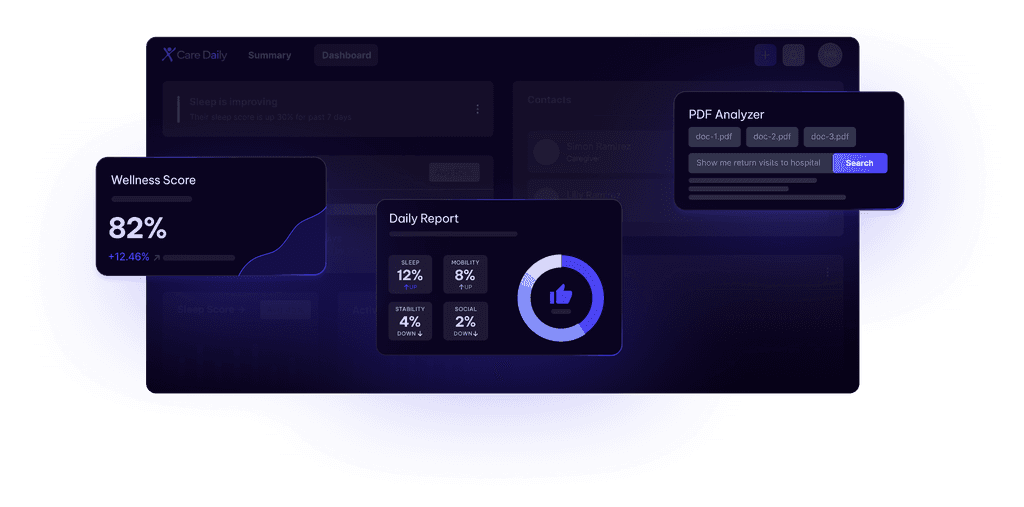Insights from David Moss at HLTH Conference
As David Moss, CEO of Care Daily, travels to Las Vegas for the much-anticipated HLTH conference, he shares his excitement about connecting with industry leaders. “I’m looking forward to seeing everyone at the HLTH conference," Moss says. "It’s a great place to dive into the latest innovations in healthcare and senior care.”
One of the major highlights he points out is a new report by Laurie M. Orlov, Principal Analyst at Aging and Health Technology Watch. Titled The Future of AI in Senior Living and Care What’s Now and Next, the report addresses the growing challenges in the sector. Orlov sheds light on workforce shortages, rising resident expectations, and the overwhelming fragmentation of technology that doesn’t always offer actionable insights. According to her report, while AI tools like generative AI (GenAI) and machine learning are slowly being adopted, their full potential is yet to be realized.
"Tech fragmentation is a huge problem," Moss notes. "But what I like about Laurie's report is her focus on making sense of the data we already collect." Care Daily is already leveraging this data to predict falls 2 to 7 days in advance using EHR data. As Moss explains, "It gets even more accurate when we integrate continuous data from ambient sensors."
As the aging tech market rapidly evolves, it’s clear that AI has the potential to solve pressing issues. Capabilities already in use include voice-to-text transcriptions, health tracking via sensor data, and risk prediction through advanced data analysis. But Moss and Orlov agree that the future holds even more promise. Within the next five years, AI-driven tools will revolutionize care with personalized voice assistants, predictive analytics, and AI systems acting as "health smoke detectors," offering unparalleled protection for residents.
The HLTH conference is the ideal platform for these discussions. As a vibrant community, HLTH Inc. is renowned for delivering impactful global events, inspirational content, and initiatives that drive real change in healthcare. And in the senior living space, the time to embrace AI’s transformative power is now.
“The future is promising,” says Moss. “But the key is to adopt AI solutions that are not only reliable and secure but also focused on improving both care delivery and operational efficiency.”

